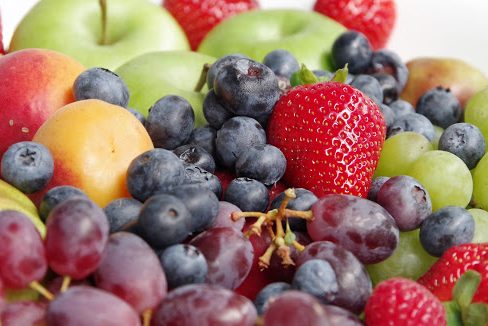Phytochemical compounds are contained in plant-based foods. Discover how to take advantage of the health benefits they provide (anti-inflammation, cancer prevention…) and how to incorporate them into your diet.
Phytochemical compounds are chemical substances that are naturally contained in plant-based foods. Their health benefits, especially their antioxidant properties and their potential role in cancer prevention, are currently being researched extensively.
Phytochemical compounds are found in food but are neither nutrients, nor macronutrients per se, and they do not belong to the group of vitamins or minerals. Therefore, they do not have a caloric or nutritional function, and yet they are contained in certain foods, providing various benefits.
Hence, foods that contain phytochemical compounds are called functional foods because in addition to the nutritional component, they also provide other types of health benefits.
In a common, healthy diet we can obtain a certain amount of phytochemical compounds that is sufficient to provide benefits for our bodies. Likewise, the combination of different phytochemical compounds in the same food enhances and improves their effects, even more than if they were consumed separately or as a supplement.
Functions of phytochemical compounds and consumption benefits
Many phytochemical compounds provide organoleptic or sensory qualities to the foods that contain them. These compounds are responsible for color, odor and flavor. But, in addition, the consumption of phytochemical components contained in foods is associated with multiple health benefits. This is a developing field and new effects are being discovered constantly.
Benefits of phytochemical compounds
Carotenoids are compounds that contain vitamin A, so they provide the benefits of this vitamin: they help maintaining a clear vision, the integrity of the bone and epithelial system and are also important during breastfeeding, since they help in milk production.
Several phytochemical compounds, especially phenols and terpenes, including flavonoids and carotenoids, have an antioxidant function, which means that they help reducing inflammation and protect against cardiovascular diseases such as heart attacks, high blood pressure, arteriosclerosis, etc. One of the most popular at the moment is resveratrol, which you have probably heard of because it is associated with wine.
Another of the most divulged effects of phytochemical compounds is their possible role in the prevention of certain tumor or cancer processes. This function occurs through the conversion of potentially toxic or harmful substances into non-dangerous substances. Their antioxidant properties also contribute to this protective effect.
Some compounds also support the maintenance of the immune system. Thus, there are many important beneficial properties of the phytochemical compounds contained in different foods.
Link: https://www.webconsultas.com/dieta-y-nutricion/nutrientes/que-son-las-sustancias-fitoquimicas-funciones-y-beneficios
Date: March 11th, 2020
By: Arantza Ruíz de las Heras
Nutrigenomics Institute is not responsible for the comments and opinions included in this article






